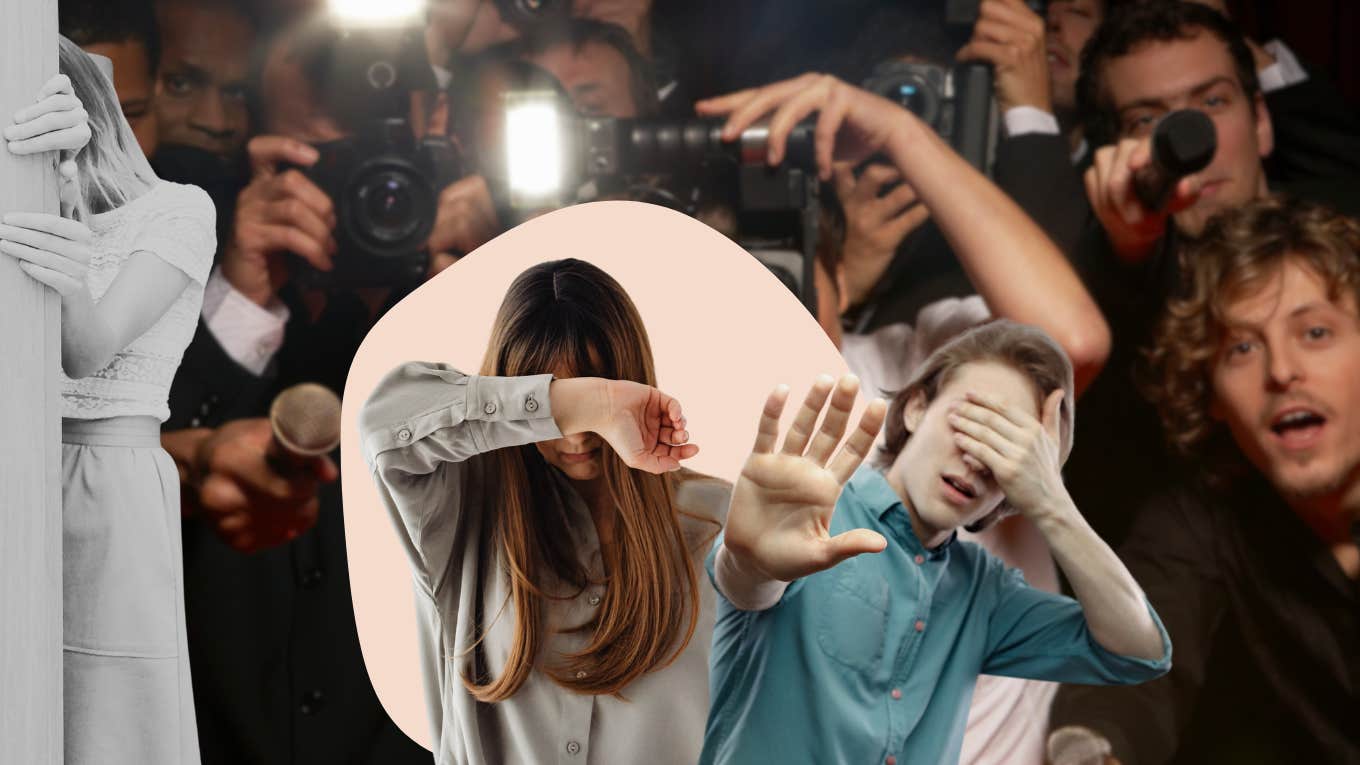Psychologist Shares A Theory On The Psychological Consequences Of Fame
 Karolina Grabowska, Daria Shevtsova, Andrew Hobbs, Khosro / Canva
Karolina Grabowska, Daria Shevtsova, Andrew Hobbs, Khosro / Canva A licensed clinical psychologist and trauma therapist who goes by Dr. Pria Alpern on TikTok recently posted about the impact that fame has on people, focusing specifically on the self-consciousness hypothesis, developed by Mark Schaller.
The psychologist shared a theory positing that one consequence of fame is chronic self-consciousness.
In her TikTok post, Dr. Alpern referenced Schaller’s paper, originally published in the Journal of Personality in 1997, taking a closer look at his proposed theory that “because other people are aware of them, famous people might be more likely to be aware that other people are aware of them.”
In some ways, this theory seems to say that fame functions like a funhouse mirror. Fame creates a distorted view of self, one that amplifies certain features over others. It leads to “greater levels of self-focused attention,” as famous people view themselves through the perspective of others, which leads to them feeling a heightened sense of self-consciousness.
People in the public eye exist in a world with a consistent audience. Because they tend to analyze their own actions by virtue of being observed by others, “the accompanying self-consciousness may be both unavoidable and chronic.”
Famous people are hyper-aware of their image and can feel intensely self-conscious as a result.
Existing in a state of heightened self-consciousness can mean living in extreme discomfort. Schaller observed that some famous people tend to retreat from the public eye in order to escape that level of self-consciousness, yet this type of retreat isn’t always possible.
While some element of self-doubt is part of being a person in the world, extreme self-consciousness leads to extreme self-doubt, a sense of lacking, or not knowing who you really are.
In 2017, when Kylie Jenner was 19, she filmed a short-lived reality series titled “Life of Kylie,” in which she opened up to a therapist during the premiere episode.
“I just feel like for so long, I’ve been putting out this different persona to the world,” she explained. “Putting up a version of myself to the world that isn’t fully me.”
The therapist evaluated Jenner’s statement, responding, “You’re kind of presenting not your whole self; if that’s criticized, then you’re still protected.”
While the efficacy of a filmed therapy session seen by millions of viewers could be called into question, Jenner clearly relayed the dissonance between private and public selfhood she experienced as part of her fame.
"I don't know what it’s like to live a normal life, where people just don't know who you are, to get out [of] the car and not have everyone stare at you... I feel like when you grow up on camera, people feel like they know you,” Jenner continued.
She explained the disconnect between people’s idea of herself and who she really is, noting that she wasn't entirely sure who she really was.
Heightened self-consciousness means that famous people constantly compare themselves to others or to a perceived 'ideal' self.
Dr. Alpern noted one particular passage of Schaller’s paper, which stated that “chronic self-awareness may lead to a global evaluation of self at a more abstract level,” which can lead to “the tendency to compare oneself against successful other people, [or] against one’s own ideal self.”
Because of the culture of fame, the expectations and ideals that famous people are held to are superimposed onto them by others, meaning that meeting that ideal, projected image is virtually impossible.
A heightened level of self-consciousness can easily create an unstable environment, where a person constantly doubts their own actions or loses a sense of who they are as a person.
While there doesn’t appear to be one direct solution to the complexities of fame, there seems to exist some actionable ways that people can navigate those demands, by trying to stay as connected to their truest selves as possible, often by stepping back from the limelight to reconnect to who they are.
Alexandra Blogier is a writer on YourTango's news and entertainment team. She covers mental health, pop culture analysis and all things to do with the entertainment industry.

